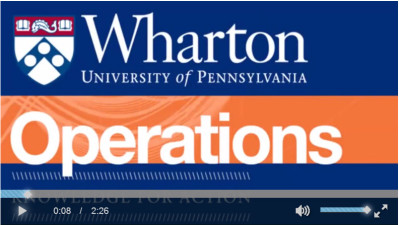
Across industries both old and new, “innovation” is emerging as something of a buzzword. A recent Philips white paper, “From Insight to Impact: Realizing the Potential of Innovation,” seeks to redefine it as more than just a tool for gaining competitive advantage. Emphasizing the idea of “high impact innovation”—an advance that offers significant improvement to people’s lives—the white paper explores thriving innovations in the education, health care, and financial services industries. In particular, it examines what factors determine the success of innovation, and how they can be fully leveraged to address broader, global challenges.
The white paper’s first case study (PDF) investigates the rise of MOOCs, or Massive Open Online Courses, in the field of education. Though long-distance learning has existed in one form or another for many years, Mack Institute Co-director Christian Terwiesch attributes its previous lack of success to a failure to “reimagine the need.” More recent MOOC platforms such as Coursera, EdX and Udacity are quickly growing because they, unlike their predecessors, recognize that online learners want short, focused talks and quizzes rather than traditional longform lectures. In short, they repackaged online education in order to better align with consumer desires and foster global communities of students.
The growth of MOOCs brings significant disruption to the traditional university model, raising questions about the value of a degree when so much of the information is available online. Inside the classroom, “flipped” classes mean professors have to adapt as well: when students can watch the lectures on their own time, what’s the most valuable way to use all that newly available class time? The Mack Institute will explore these and other issues in an upcoming workshop, “Beyond MOOCs: New Learning Technologies and Their Impact on Higher Education.”
A second case study (PDF) highlights the emergence of personalized medicine in the health care industry. After the human genome was decoded in the late 1990s, research shifted toward solving individual problems rather than finding the next blockbuster cure-all drug. The challenge now lies in making the new data actionable; information itself is not a cure. (The institute’s January workshop “How Far Beyond the Pill?: Innovating the Pharmaceutical Commercial Model” explored similar themes such as the desire of pharmaceutical firms to offer integrated customer solutions.)
Access the full report here, which includes a third case study about the success of M-Pesa, a mobile money transferring service in Kenya.



